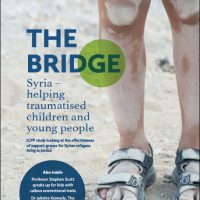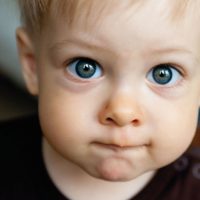CAMHS
-

Music therapy: helping children and young people to access their education
Music therapy is a psychological therapy that uses the medium of music to achieve non-musical aims, such as encouraging self-expression where verbal skills are limited due to a physical or learning disability, or when clients find verbal therapy too direct or challenging.
Read more
Disclaimer: This is an independent blog and ACAMH may not necessarily hold the same views. -

JCPP Editorial: Volume 59, Issue 01, January 2018
“‘The way we do the things we do’ – decision making transparency at the Journal of Child Psychology and Psychiatry” by Edmund J.S. Sonuga-Barke
Read more -

The Bridge Returns
Welcome back to ‘The Bridge’. The full set of articles will be published in December for ACAMH Members.
Read more -

Anti Social Behaviour
Multiagency professionals trying to deter children from developing antisocial or criminal behaviour should focus on enhancing children’s emotional awareness or affective empathy, according to a recent study of vulnerable children in Amsterdam.
Read more -

Defining the familiar: the birth of Avoidant or Restrictive Food Intake Disorder
Dr Rachel Bryant-Waugh has seen many changes in the 30 years she has spent helping children and adolescents overcome their eating disorders. Among these changes was the 2013 inclusion of a new disorder in the psychiatrists’ bible – the DSM.
Read more -

A postcard from Malta
“It’s all to do with education and standards, and trying to bridge that gap”
Read more -

Patient-centred practitioners prioritise PROMs
Clinicians who use therapeutic approaches that focus on patients’ perceptions, such as CBT, may be more likely to seek patient feedback.
Read more -

Psychosis pathway positive for patients
Using a dedicated pathway for patients with an ultra-high risk of psychosis at a London CAMHS community unit led to fewer admissions, quicker psychiatric review and a shorter wait for treatment.
Read more -

Toughened toddlers seek rewards & Toddlers’ temperament is autism early indicator
Two overviews of papers focusing on toddlers. The first on those who grow up in a harsh environment and act assertively at aged two tend to do better than average when solving reward-based problems, but do worse on abstract ones. The second suggesting a new avenue for exploring early diagnosis in autism.
Read more -

The hardest thing to do is say goodbye
“It was an accident,” says Dr Mark Lovell. But what is he referring to?
Read more